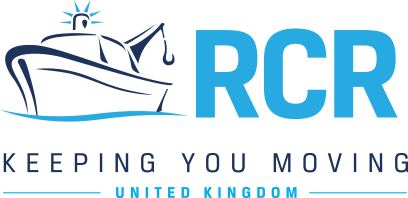Reducing Common Risks
If you would like information on anything mentioned below or would like the advice of an RCR engineer please do not hesitate to contact us on 01785 785680.
Hull and deck fitting
| Risk | Recommendation |
|---|---|
| Corroded, worn or loose hoses and jubilee clips | Mild steel clips should be replaced with a stainless steel alternative. Regular checks should be undertaken, testing tightness and for signs of corrosion. Double clips are preferable. Replace suspect hoses and check for chaffing |
| Blocked cockpit or locker drains | Check regularly, especially during Autumn and Winter or following long periods of inactivity. Drains block easily and the heavy rain can cause sinking |
| Stiff, worn or corroded engine and steering controls. Can break at critical moments under load | Inspect and replace as part of routine maintenance. Lubricate to ensure free running |
| Bilge pumps not operating; | Test before leaving the boat, and on return or before journey. Heavy rain fall, leaking stern glands, and issues with weed hatches can result in water ingress that can quickly fill the boat and cause sinking. |
Machinery and Engine Controls
| Risk | Recommendation |
|---|---|
| Rubber seal failure on sail or out-drive unit | Check regularly and replace in accordance with manufacturers recommendations |
| Stern gland or gaiter failure | Gradual wear and tear, so check packing and gaiter clips, which should be doubled up, and regularly grease. |
| Corroded or lost propeller locking pin, leading to loss of blade or blade drives | Ensure adequate cathodic protection and check during routine maintenance |
| Frost damage to engine and water heaters whilst your vessel is ashore or afloat. Split engine block, head or pipes | Safeguard engine as per manufacturers instructions and drain down systems when laid up |
| Stiff, worn or corroded engine and steering controls. Can break at critical moments under load. | Inspect and replace as part of routine maintenance. Lubricate and ensure free running. |
| Loose or worn engine mounts/ brackets or bolts | Check regularly or before a journey. Symptom is usually an increase in vibration. Can result in misalignment causing damage to prop, stern gear and other complications. |
| Ensure Batteries are secure; in a suitable storage compartment and use straps where required. | Batteries that are not secure can move when on a journey, in sever cases this can result in a short circuit condition if they come in to contact with one another, or a metal surface. This can result in fire, cables overheating or batteries exploding. |
Fire and Fire Extinguishers
| Risk | Recommendation |
|---|---|
| Gas leaks from valve, piping, cooker, heater or fridge leading to fire or explosion | Bottles should be stored upright in a self venting compartment. Gas cylinder valves must be firmly shut when not in use. Check for corrosion replacement should only be undertaken by a qualified Gas Safety Engineer. If a gas or fuel leak is suspected:
Ventilate as much as possible and use a hand pump to remove any residual gas |
| Out of date, poorly installed or discharged automatic extinguishers | These will not operate when a fire is detected and may invalidate your policy. Ensure they are located in obvious and useful locations |
| Inadequate containers for petrol storage; incorrect use of spare gas cylinders | Only use cans designed for carrying petrol. Never use an open container to hold or transfer fuel or to mix petrol and 2 stroke oil. Make certain spare gas cylinders are properly secured and cannot break free in bad weather |
| Blocked or inefficient ventilation; leaking exhausts | For engine heaters, stoves or fridges ensure that exhausts are in good condition. Poor ventilation could prove fatal for you or your passengers |
Theft and general security
| Risk | Recommendation |
|---|---|
| Break-ins | Never leave your boat unlocked, even for short periods. Remove expensive items from view. Check yard security and lock hatches. Do not leave your boat on exposed or unsafe mooring |
| Theft of outboard, tender, generator and other exterior equipment | Use a purpose manufactured locking device on outboard. Store equipment below deck when left for long periods. Mark with visible security coding. Keep a record of the serial numbers of outboard motors and other expensive items. Fit strong locks to main hatches and a wheel clamp to trailers whilst left unattended |
| Boarding when travelling through urban areas | When travelling through urban areas on the inland waterways especially during school areas there is a high risk of boarding by groups intent on theft or vandalism. To avoid this keep doors and windows shut and locked, remove all valuables from sight and store belongings i.e bikes below decks. Do not travel at night. |
Heaters and Dehumidifiers
| Risk | Recommendation |
|---|---|
| Fire | Low voltage “Greenhouse” heaters should be used, rather than domestic bar heaters Dehumidifiers should be suitable for continuous use and regularly checked, with filters changed as necessary Devices of this type should be secure, with a stable power supply and have cut-out devices |
Navigational Errors
| Risk | Recommendation |
|---|---|
| Grounding claims; becoming stranded on weirs, low bridges or in shallow waters. | Apply proper passage planning. Have charts for intended cruising area; always think ahead and keep aware of weather forecast. |
| Collisions with other boats or stationary objects | Plan well ahead and maintain. Proceed with caution when visibility is poor or your or you are in congested waters |
| Boarding when travelling through urban areas | Don’t undertake too demanding a trip and be aware that claims resulting from being ‘drunk’ or under the ‘influence of drugs’ will be excluded |
| Damage and injury in locks | Ensure all crew are fully (shore side and lock side). Do not leave the unattended as waters rise or fall. Be aware of position of sills. Leave the lock as you would expect to find it |
Laying up and Launching Hazards
| Risk | Recommendation |
|---|---|
| Theft and vandalism whilst ashore | When ashore in winter months, boats are prone to theft of equipment and vandalism. Choose a yard with good security and reputation. Remove all valuables and leave cupboards and draws ajar |
| Through hull fittings, pipes, flooring and stairs not properly replaced after lay up | Double check all through hull fittings prior to launch; close sea cocks. Compile own check list. Be there when your boat is launched |


